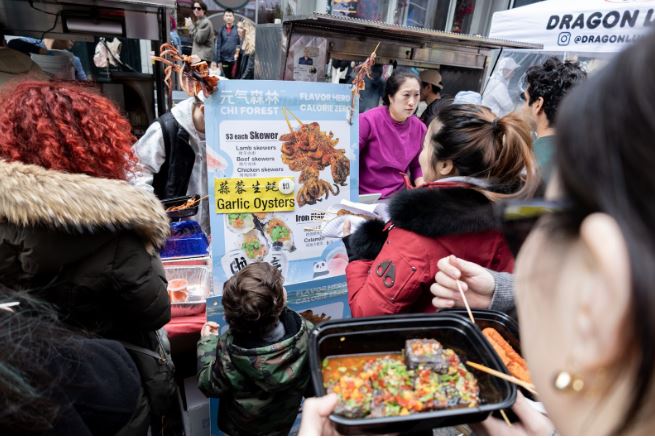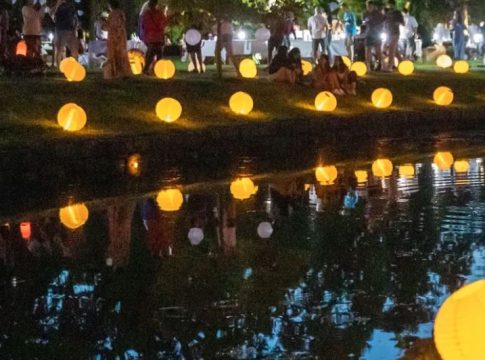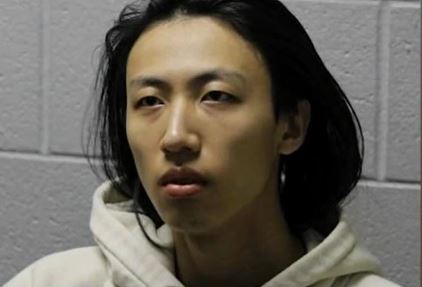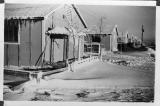By Kathy Ou
It is not every day that a few blocks in central Manhattan feel like a culinary world fair.
That was the feeling at Dragon Fest on Broadway between 8th and 14th in New York earlier this month.
“I love it, I love it. It is so good,” Nilava Mukherjee said, standing at the southeast corner of 13th and Broadway while working on a Chicken Teriyaki Bun on a paper tray.
Mukherjee grew up in India and had lived in New York for four-and-a-half years. He had come to Union Square that day with his husband for a friend’s birthday. They chanced upon the rowdy scene where flavors of Mediterranean and Caribbean skewers gripped the swarming visitors and passers-by, and vibrant yellow feather flags with red lettering “Dragon Fest” flew high.
LATEST STORIES
At the same time, flags of the Philippines lined the street from 11th to 12th, while blade flags of red, white and black in different combinations showing “JAPAN Fes” lined it from 8th to 9th. Mukherjee entered Dragon Fest from 13th, got in line for C Bao Asian Buns, and bought a Hong Kong-style pork bun and the chicken teriyaki bun.
Dragon Fest debuted in 2023 as “the largest outdoor Chinese food festival in New York City so far,” according to Biubiu Xu, the festival’s founder. Last year, it exceeded the team’s expectations and attracted over forty thousand visitors. To expand on the success, the festival returned this year with sixteen events across three boroughs — Manhattan, Brooklyn and Queens — spanning six months from April to October.
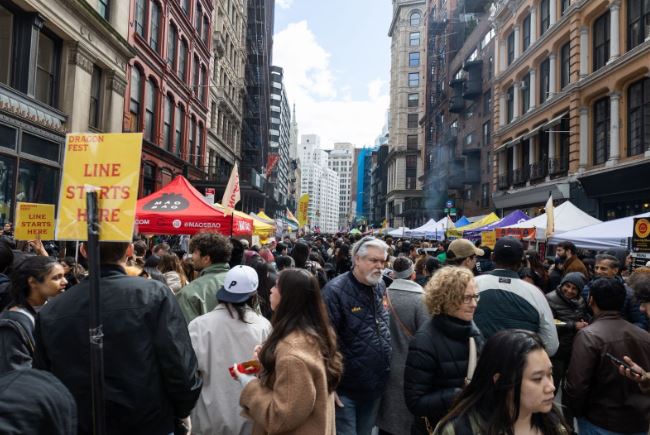
Similar day fairs and night markets have sprung up across major cities in the U.S. during the past five years. In New York City, there have been at least six Asian street markets that debuted after the pandemic. In Los Angeles, two Thai night markets were created within the past six months. The Seattle Night Market in Chinatown will resume later this year after a lack of sponsorship caused it to pause in 2023. Others featuring food and arts from particular Asian communities sprang up in cities like San Francisco and Boston. Meanwhile, Oregon hosted the largest Asian night market and Asian-centered event in its history in Beaverton last year and will return this July.
Rooted in cultural representation, economic development and community revitalization, these markets are the latest additions to the history of Asian street markets in the U.S. Compared to the street markets in Asia, Asian street markets in the U.S. began emerging within the last half-century and only became more popular over the past decade. Since the COVID-19 pandemic, street vending has taken off in particular as restrictions on indoor space use moved businesses outside.
“COVID was another big opportunity for cities to kind of experiment more with these types of interventions, to a point that we sort of take it for granted now,” said Jeff Hou, a Professor of Landscape Architecture at the University of Washington and Director of the Urban Commons Lab. “But there was a time that things like this were not looked at in a positive light.”
Robert Ashe is the director of operations of Clearview Productions, an event management company that produces street fairs across New York City by hosting individual vendors and festivals with separate identities such as Dragon Fest. Ashe said that all of the independent festivals Clearview currently helps produce are Asian.
“I’m seeing this natural phenomenon happening where so many different cultures want to showcase themselves,” Ashe said.
Paulo Manaid is an artist and co-founder of the Philippines Fest which officially debuted in New York City in 2023. Featuring a diverse lineup of Filipino food, fashion and art vendors at regular street fairs, partner events, and themed events such as the Ube Festival, the Philippines festival claims to be “the largest Filipino Street Fair” and the first street food festival in New York City. It has traveled to many other American cities including Miami, Atlanta and Baltimore, and will travel to Jersey City on May 26.
It was during a 2015 balikbayan trip, a journey taken by Filipino Americans back to the Philippines, when Manaid discovered the beauty of traditional Filipino fabrics. After bringing them back to New York, Manaid began to make and sell clothes and handicrafts made from sources indigenous to the Philippines. In 2020, Manaid met his future co-founders, VJ Navarro (So Sarap NYC) and Augelyn Francisco (Kabisera), while volunteering at a snacks and coffee delivery operation for hospitals that ran out of the old storefront of Filipino eatery Kabisera in the Lower East Side. The three began organizing other Filipino vendors and small business owners to do pop-ups in front of the store as pandemic restrictions made indoor spaces unavailable. From these pop-ups grew the Philippines Fest. Most of its vendors today have come from those early pop-up days.
Over eighty percent of Dragon Fest’s vendors were based in Flushing, Queens, Xu said, where Asian people made up over sixty percent of the population and Chinese food in all varieties abound.
“Before Dragon Fest, I think a lot of Americans never tried very traditional Chinese snacks like bo zai gao (钵仔糕), or maybe they never tried the stinky tofu before,” Xu said. “We want to bring the very traditional Chinese snacks to the market. It enriches part of New York City’s Chinese food culture.”
One of the most exciting parts for Xu about organizing the festival was getting to discover new Chinese snacks and learn about their stories, such as dan hong gao (蛋烘糕), which is a traditional Sichuanese street food made up of an egg crepe with a savory or sweet filling.
Both the Dragon Fest and the Philippines Fest said getting vendors for the first event was a struggle, but as success stories spread through word of mouth, the number of applications grew each year. According to Xu, over 200 vendors applied to Dragon Fest this year. Manaid said each event usually hosts 20 to 50 vendors depending on vendor availability and the event location. He said that the team tried to curate the festival experience, reduce repetitions and encourage vendors to serve what is unique.
“Once they [vendors] see the potential, then they really become creative,” he said.
Just like Dragon Fest, the Chinatown Night Market in New York City also preserves cultures and uplifts small businesses but in a different way.
“We really are coming at it from a nonprofit community perspective,” Chinatown Night Market organizer and executive director of Think!Chinatown Yin Kong said.
Since debuting at Forsyth Plaza in 2021 as a pandemic recovery program for the Chinatown community, Chinatown Night Market has sustained and grown in scale each year through a partnership with Asian Americans for Equality and other sponsors such as Citizen Bank. Each year, the event involves dozens of Chinatown-based vendors and businesses in food, crafts and arts. In supporting the vendors who lack needed permits and other logistics of mom-and-pop businesses, Think!Chinatown employed a member who could speak multiple Chinese languages to work one-on-one with them.


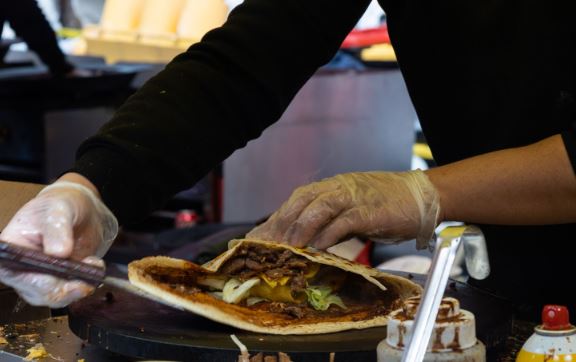
Kong said one aspect that distinguished Chinatown Night Market was its emphasis on cultural programming, including the utilization of the plaza’s “natural stage” for arts activation where a lineup of local artists and folk art groups perform.
“It’s one of the largest ‘stage’ we have in Chinatown,” Kong said. “It’s really for fulfilling a larger community mission of supporting our local businesses but also offering a sense of safe space within a public realm.”
The significance of locating the night market at Forsyth Plaza was manifold, Kong said. As the site of the Forsyth Produce Market and a central place in the Manhattan Chinatown area connecting Canal Street, the Fujianese corridor and the entrance to the Manhattan Bridge, the plaza is however inactive and unsafe at night.
“By programming it, we’ve brought a lot of city attention to the lack of infrastructure there,” Kong said. “We really want to make sure that impact was beyond just the day of the festival. But it has long-term impacts.”
Kong said the team is currently working on a long-term plan with the Department of Transportation to increase lighting and install electricity to the area. Until then, the night market will remain at its current scale and size.
On April 20, Thai Fest debuted in Mid-Manhattan with twenty-nine vendors. According to Chenyu Wang, the operations manager of Dragon Fest whose team launched the event, Thai Fest was Dragon Fest’s first sister brand, and it will also be an annual event taking place multiple times a year.
When Hou began writing about the Seattle Chinatown International District Night Market in the late 2000s, he said it was a time when Asian night markets began to emerge and popularize. He wrote that he was drawn to the Seattle Night Market because, although it shared characteristics with most other North American Asian night markets at the time in that they were created for a neighborhood’s economic interests, it also served as a cultural, social and political space that “activate the neighborhood’s parks and open space.”

Despite the interruption of last year’s events, Hou said he thinks these different roles the market has served have largely held true.
“Over time, as things become institutionalized, it begins to lose some of the original character,” Hou said. “It is still a space for you to go and socialize with other people. It’s a political space in the sense that it is an opportunity for the community to organize.”
As cities changed, Hou said street markets are an integral part of that transformation.
“There’s something that is coming from a community, that people wanted to create something that have a sense of belonging,” Hou said. “And also just the fact that most American cities are changed, we’re becoming more open to having these events, serving as a mechanism to activate the city.”
Correction: A previous version of the article included a quote from Think!Chinatown executive director Yin Kong that may have implied the business at the markets is unsuccessful. The quote has been removed to improve the accuracy of the story.
AsAmNews is published by the non-profit, Asian American Media Inc. Follow us on Facebook, X, Instagram, TikTok and YouTube. Please consider making a tax-deductible donation to support our efforts to produce diverse content about the AAPI communities. We are supported in part by funding provided by the State of California, administered by the California State Library in partnership with the California Department of Social Services and the California Commission on Asian and Pacific Islander American Affairs as part of the Stop the Hate program. To report a hate incident or hate crime and get support, go to CA vs Hate.

